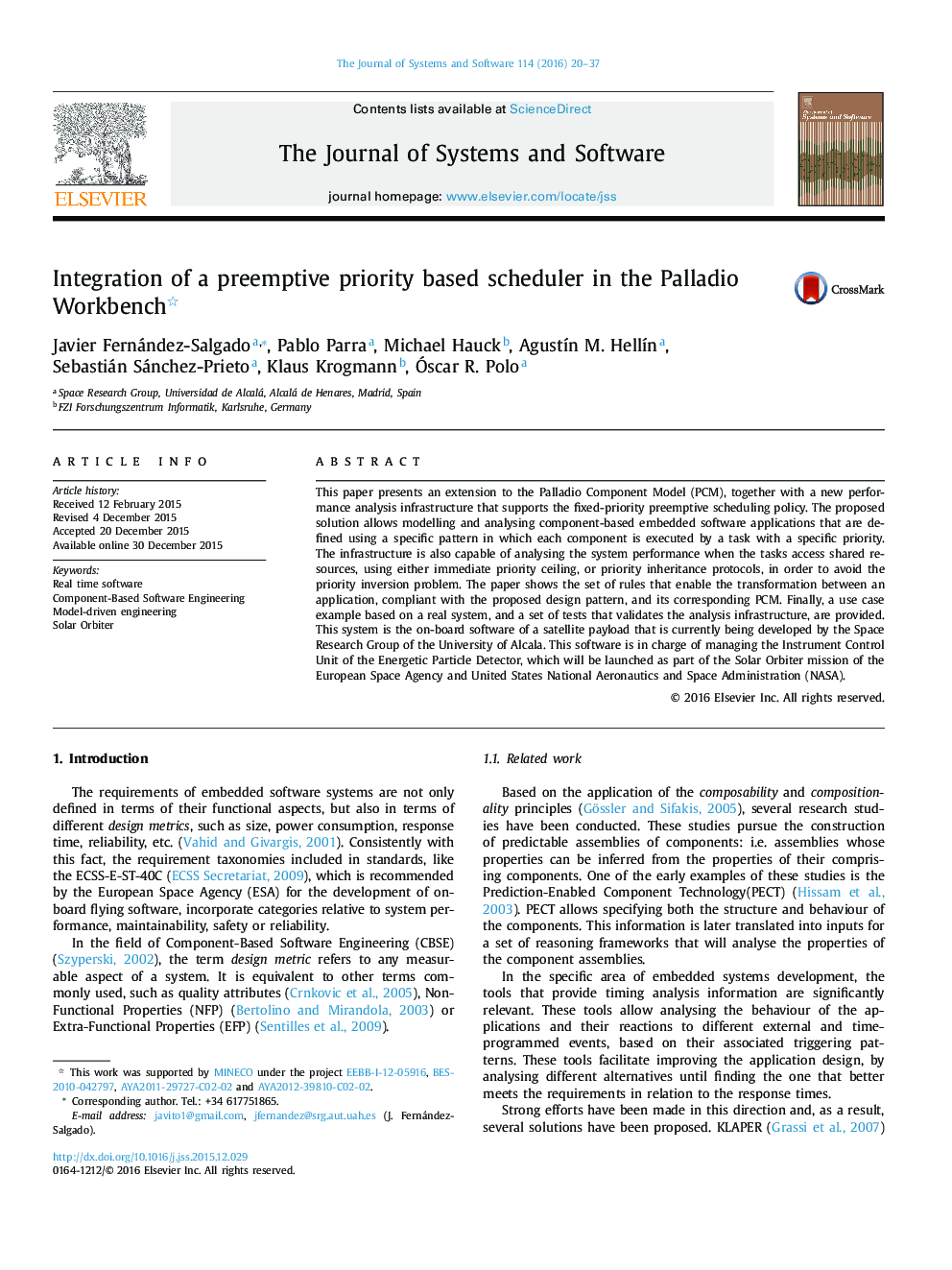| Article ID | Journal | Published Year | Pages | File Type |
|---|---|---|---|---|
| 461378 | Journal of Systems and Software | 2016 | 18 Pages |
•We present an extension of Palladio Component Model for embedded systems.•A set of patterns has been defined to model real-time systems in Palladio.•A set of validation tests is provided to prove the correctness of the solution.•A complete use case based on a real system is provided.
This paper presents an extension to the Palladio Component Model (PCM), together with a new performance analysis infrastructure that supports the fixed-priority preemptive scheduling policy. The proposed solution allows modelling and analysing component-based embedded software applications that are defined using a specific pattern in which each component is executed by a task with a specific priority. The infrastructure is also capable of analysing the system performance when the tasks access shared resources, using either immediate priority ceiling, or priority inheritance protocols, in order to avoid the priority inversion problem. The paper shows the set of rules that enable the transformation between an application, compliant with the proposed design pattern, and its corresponding PCM. Finally, a use case example based on a real system, and a set of tests that validates the analysis infrastructure, are provided. This system is the on-board software of a satellite payload that is currently being developed by the Space Research Group of the University of Alcala. This software is in charge of managing the Instrument Control Unit of the Energetic Particle Detector, which will be launched as part of the Solar Orbiter mission of the European Space Agency and United States National Aeronautics and Space Administration (NASA).
